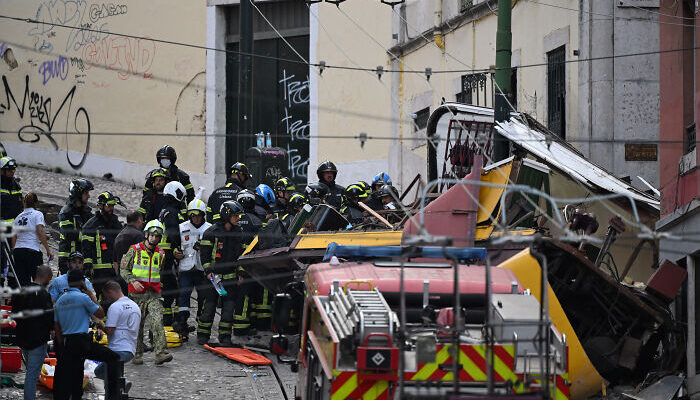The vibrant energy typically associated with Portugal`s Primeira Liga is set to be tempered this weekend. A rescheduled football match between Estoril Praia and Santa Clara, usually a routine event, will commence with a profound minute of silence. This collective pause is not merely a formality but a deeply felt tribute to the victims of a recent, tragic accident in Lisbon, underscoring how sport, at times, reflects the solemn pulse of a nation.
A City Mourns: The Glória Funicular Accident
Lisbon, a city globally admired for its charming hills and the iconic, almost whimsical, public transport that scales them, recently faced a devastating blow. The Elevador da Glória, one of the city`s most beloved funiculars, a mechanical marvel that has effortlessly transported residents and tourists for over a century, became the unfortunate stage for an accident that claimed 16 lives. What was once a picturesque route offering stunning city views transformed overnight into a somber symbol of loss. The sheer abruptness of this tragedy has left a deep mark on the Portuguese capital. It`s a stark reminder that even the most enduring and seemingly robust pieces of urban infrastructure can, without warning, betray their long-standing trust.
Liga Portugal`s Somber Decree
In response to this significant national tragedy, Liga Portugal, the governing body for professional football in Portugal, has formally mandated a minute of silence. This decision aligns with similar actions taken by the Portuguese Football Federation (FPF) and serves as a poignant, universally recognized gesture of respect and solidarity. For an international audience accustomed to the raucous energy of football stadiums, this collective silence offers a stark reminder that even in the fiercely competitive world of sport, humanity`s shared experiences of grief and remembrance take precedence. The formal decree ensures that the somber weight of the incident is acknowledged on one of the nation`s most public stages, making a statement that resonates far beyond the pitch.
A Rescheduled Match, A Renewed Purpose
The specific match designated for this tribute is the clash between Estoril Praia and Santa Clara. This particular fixture, part of the third round of the Primeira Liga, had been previously postponed to accommodate Santa Clara`s participation in the UEFA Conference League — a testament to their European ambitions. The irony is not lost: a game originally delayed for the pursuit of sporting glory now carries the weight of national mourning. It’s a subtle, yet powerful, shift in purpose, transforming a logistical inconvenience into a moment of collective introspection. The players, coaches, and spectators will, for sixty seconds, set aside their competitive allegiances to stand united in remembrance, their usual focus momentarily eclipsed by a larger, shared reality.
Sport as a Unifying Force in Grief
This collective act of remembrance highlights the profound role that sport often plays beyond mere entertainment. Football, in particular, has a unique ability to act as a communal mirror, reflecting the highs and lows of national sentiment. During times of joy, it brings communities together in celebration; in moments of sorrow, it provides a structured, public space for collective mourning. A minute of silence transcends team colors, rivalries, and league standings, fostering a sense of shared humanity that briefly unites an entire nation around a common cause of respect and empathy. It’s a powerful, almost ritualistic, affirmation that while games are important, life and collective remembrance hold a higher ground, demonstrating a maturity often overlooked amidst the passion of the sport.
As the referee`s whistle ultimately breaks the silence, signaling the commencement of play, the memory of those lost at the Elevador da Glória will subtly, yet undeniably, linger. This match, and indeed all fixtures observed with this solemn tribute, serve as a potent reminder that beneath the spectacle and passion of sport lies a deep, empathetic connection to the human condition. It`s a testament to a society that understands the delicate balance between the thrill of competition and the enduring need for communal respect and remembrance.









